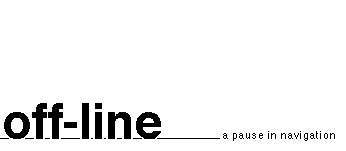 |
 |
price and quality January-February, 1999 |
 |
 |
price and quality January-February, 1999 |
| Giancarlo Livraghi gian@gandalf.it |
|
| |
|||
|
Where I live, we're drowning in debates, essays and conventions on the effects of the new Euro currency. Most of them are a waste of time. But a simple fact is clear: a shared currency and fixed exchange rates make it easier to compare prices in eleven countries, that are already one big dutyfree market. This puts a spotlight on a problem that was already there: how important is price in online transactions? Some business schools are studying the problem; we shall see what they have to say. But some simple observations are possible even now, while e-commerce in Europe is still in its infancy. The problem of price and quality is older than money. How many pounds of wool for an ounce of purple or a well decorated vase? Is a phial of a famous sorcerer's potion worth more than a healthy cow? How much more are we prepared to pay for our trust in a well known merchant or a reliable scale? A wise buyer knows how to compare price and value. Now we are talking about intelligent agents, online systems that offer side-by-side comparison of products and services – and, of course, prices. They could become points of reference and thus gain leverage. They could have an impact as strong as organized distribution had on packaged goods. But even without such agents each one of us can compare prices and qualities online much more easily than by visiting stores or calling suppliers. Many people think that this leads automatically to a price and discount war; that online marketing will be necessarily price-driven. Of course there is some truth in this scenario: especially in those industries where distribution costs and retail markups are high. But if all business online boiled down to a price battle we would not have a healthy market: quality and service would suffer. I don't think that a transparent market, where comparison is direct, could destroy the values of brand, trust, relationship and service. For instance, I have years of good experience with an online bookstore (guess who? Amazon) and no time to waste shopping around. The money I might save on a book by comparing prices isn't worth the trouble of leaving a reliable supplier, with good customer service, to take risks with someone I don't know. The fact is that, regardless of the Euro or any currency, online comparison of price, quality and service will become more and more important – even for manufacturers or retailers that don't sell online. But especially internet marketers will have to consider price very carefully. To reduce it, when and where possible. To eliminate differences in geography or distribution channels. (I would be unloyal to Amazon if someone in Europe offered the same range of books with faster delivery and lower shipping cost.) But, above all, to understand which values of service, quality, trust and customer care can justify a higher price. I am quite convinced that brand values can be stronger, not weaker, online. As long as they are based on real advantages, nor just "image". I believe that substance is more important than cosmetics, especially online. In the long run this is true in every market; but it's likely to happen faster, and more sharply, on the net. This can make the environment uncomfortable for anyone moving in unprepared – but it's a big opportunity for competitors, large or small, with sound strategies of genuine value and service.
|
|||